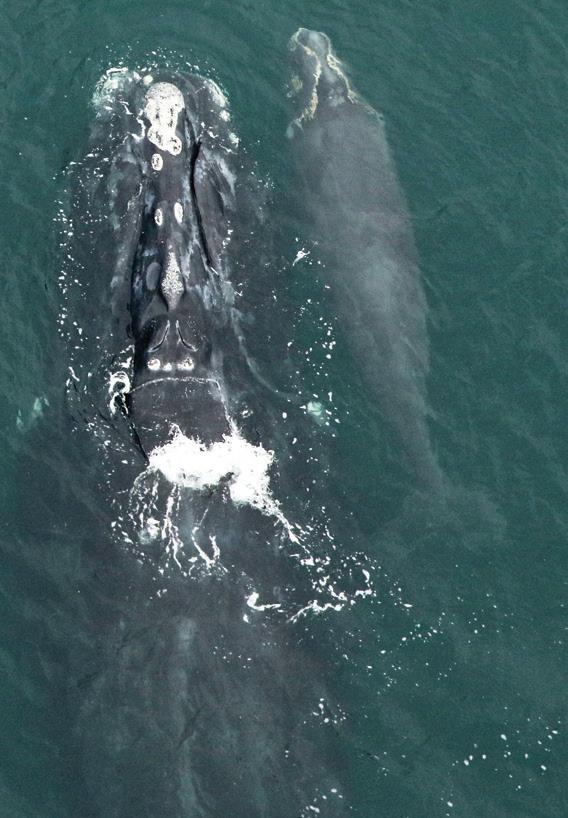
2 minute read
Right Whale Update
Along the Georgia/Florida coast, recent sightings of three North Atlantic right whale calves and three adult whales that could be pregnant have stirred hope for a strong calving season this winter. Yet this hope is tinged with the sobering knowledge that this species will require much more to avoid extinction. Here’s a brief overview.
Status: There are fewer than 100 breeding females left. (Adult females drive population growth.) And in the past 10 years the number of calves per year has dropped to half the annual average (24) born the previous decade.
Advertisement
Deaths: Since 2017, 32 dead right whales have been found in the U.S. and Canada. Another 13 whales still alive have been documented with serious injuries from entanglements or strikes. Deaths are up, calving is down. “The math is pretty simple,” said Clay George, a DNR senior wildlife biologist.
Issues: Shipping traffic remains thick along the Atlantic seaboard. Millions of lobster and crab traps are set in New England and Canadian waters each year. Warming oceans have commercial fishers moving to deeper water, increasing the risk of whale entanglements. Stronger fishing rope is worsening whale injuries. Meanwhile, the life span of adult female right whales has shrunk and intervals between calving have increased. The male/female ratio has grown to almost 2-to-1.
Outlook: A proposed federal rule to reduce entanglements is in the works, spurred in part by a lawsuit. Massachusetts is holding hearings on reducing entanglement risks. Work is being done to develop “ropeless” fishing systems that either eliminate buoy ropes or keep them out of the water column.
What GADNR is doing: Again teaming with NOAA, Clearwater Marine Aquarium and the Florida Fish and Wildlife Conservation Commission to monitor right whales this winter by plane and boat. Calves will be biopsied for genetics research. George and staff will also help in any disentanglement efforts.
What you can do: Inform yourself about these whales and what’s being done to protect them, including about sustainable seafood. Support right whale conservation in Georgia. When boating November-March, be on the lookout and slow down for right whales. Stay at least 500 yards away and report sightings at 877-WHALE-HELP (877-942-5343).
The last word: “I’m still optimistic,” George said. “In the 2000s, we saw how quickly the population can grow if mortality is managed and females have lots of calves. If we can slow ships down in the right places, and remove heavy fishing rope from their habitat, the whales would have a fighting chance.”
Visit: bit.ly/gadnr_rightwhales
Top: Catalog #1243 ‘Magic’’ and calf were sighted 4NM off St. Andrew Sound on January 4, 2021. Magic is 39 years old and this is her 7th calf. Bottom: Catalog #3130 and calf were sighted 16NM off Amelia Island on January 13, 2021. #3130 is 20 years old and this is her 3rd calf. Photos by Florida Fish & Wildlife Conservation Commission, NOAA permit #20556-01 February 2021 Southern Tides Magazine










